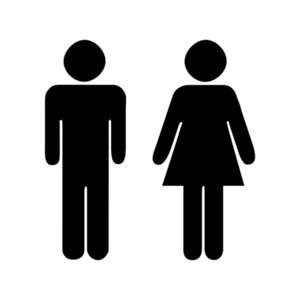
The perception that the Affirmative Action Bill (AAB), when passed into law, will empower women to lord over men cannot be substantiated, since all the policy seeks to achieve is to correct some inherent social injustices in the country.
According to the former chairpersom of AAB Drafting Committee, Mrs Joana Opare, negative perceptions and fears surrounding the Bill are part of the reasons its passage has delayed for two decades.
Meanwhile, she noted that the purpose of the Bill is to correct social, economic and political gender imbalance that emanates from persistent patriarchal socio-cultural system norms, which manifest as gross discrimination against women.
Hence the bill was designed to help eliminate gender inequalities, based on the principal that each citizen shares an equal right to self-development, and both men and women are entitled to equal opportunities.
Mrs Opare was speaking at a media forum on AAB, organised by Friedrich Ebert Stiftung in collaboration with International Federation of Women Lawyers (FIDA-Ghana), last Thursday, in Accra.
She said to ensure that all consents are captured under the bill before it becomes law, the committee met cabinet and all their inputs were incorporated, but they disappointed when the President reneged on a promise made to them to pass the policy in 2017.
Her fear was that Parliament will soon end its last sitting for 2018, yet the bill has not even been tabled before it, therefore, she called on President Akufo-Addo, who is an acclaimed gender champion and human rights lawyer, to ensure that bill becomes a reality.
The former chairperson used the occasion to debunk fears that the AAB will relieve men of their positions for women to occupy, even for those have not prepared themselves for any task, as untrue, saying that the policy is to provide the accountability framework for gender equality.
Regrettably, the policy has gone through a series of governments' scrutiny since 1998, but yet to receive parliamentary approval though Ghana is party to international conventions such as the Beijing Platform for Action, African Charter on Human Rights, and People's Rights on the Rights of Women in Africa.
She added that though women are in the majority of the population, when it comes to decision-making, they are either less or none represented at all to have their say, even on issues that directly affect them.
This is despite the Women's Manifesto, in 2004, was designed and launched as a guide to political parties to achieve 30 percent women representation in Parliament by 2008 and 50 per cent by 2012.
This, she noted, after Ghana's first President Dr Kwame Nkrumah, who achieved 18.2% of women in Parliament, consequent governments have failed to ensure a fair number of women become legislatures or serve in their administrations.
“Ghana is not new to affirmative action policies. The Representation of People People's Act, which was enacted in 1960, represented the first successful affirmative action law in Africa, after Ghana's independence,” she stressed.
The Acting Executive Director of FIDA-Ghana, Susan Aryeetey, added that although Ghana is a signatory to many international protocols, it is still lagging behind other countries that had made it a policy to achieve equal women representation in parliament.
She said Ghana has a representation gap, yet laws that will improve women and gender quality in the country are less understood, adding that the gender quality law is used to correct systematic exclusions, hence, “the AAB will increase women participation in public life.”




 There’s nothing you can do for us; just give us electricity to save our collapsi...
There’s nothing you can do for us; just give us electricity to save our collapsi...
 Ghanaian media failing in watchdog duties — Sulemana Braimah
Ghanaian media failing in watchdog duties — Sulemana Braimah
 On any scale, Mahama can't match Bawumia — NPP Youth Organiser
On any scale, Mahama can't match Bawumia — NPP Youth Organiser
 Never tag me as an NPP pastor; I'm 'pained' the 'Akyem Mafia' are still in charg...
Never tag me as an NPP pastor; I'm 'pained' the 'Akyem Mafia' are still in charg...
 Your refusal to dedicate a project to Atta Mills means you never loved him — Kok...
Your refusal to dedicate a project to Atta Mills means you never loved him — Kok...
 2024 elections: I'm competent, not just a dreamer; vote for me — Alan
2024 elections: I'm competent, not just a dreamer; vote for me — Alan
 2024 elections: Forget NPP, NDC; I've the Holy Spirit backing me and nothing wil...
2024 elections: Forget NPP, NDC; I've the Holy Spirit backing me and nothing wil...
 2024 elections: We've no trust in judiciary; we'll ensure ballots are well secur...
2024 elections: We've no trust in judiciary; we'll ensure ballots are well secur...
 Performance tracker: Fire MCEs, DCEs who document Mahama's projects; they're not...
Performance tracker: Fire MCEs, DCEs who document Mahama's projects; they're not...
 Train crash: Railway ministry shares footage of incident
Train crash: Railway ministry shares footage of incident
